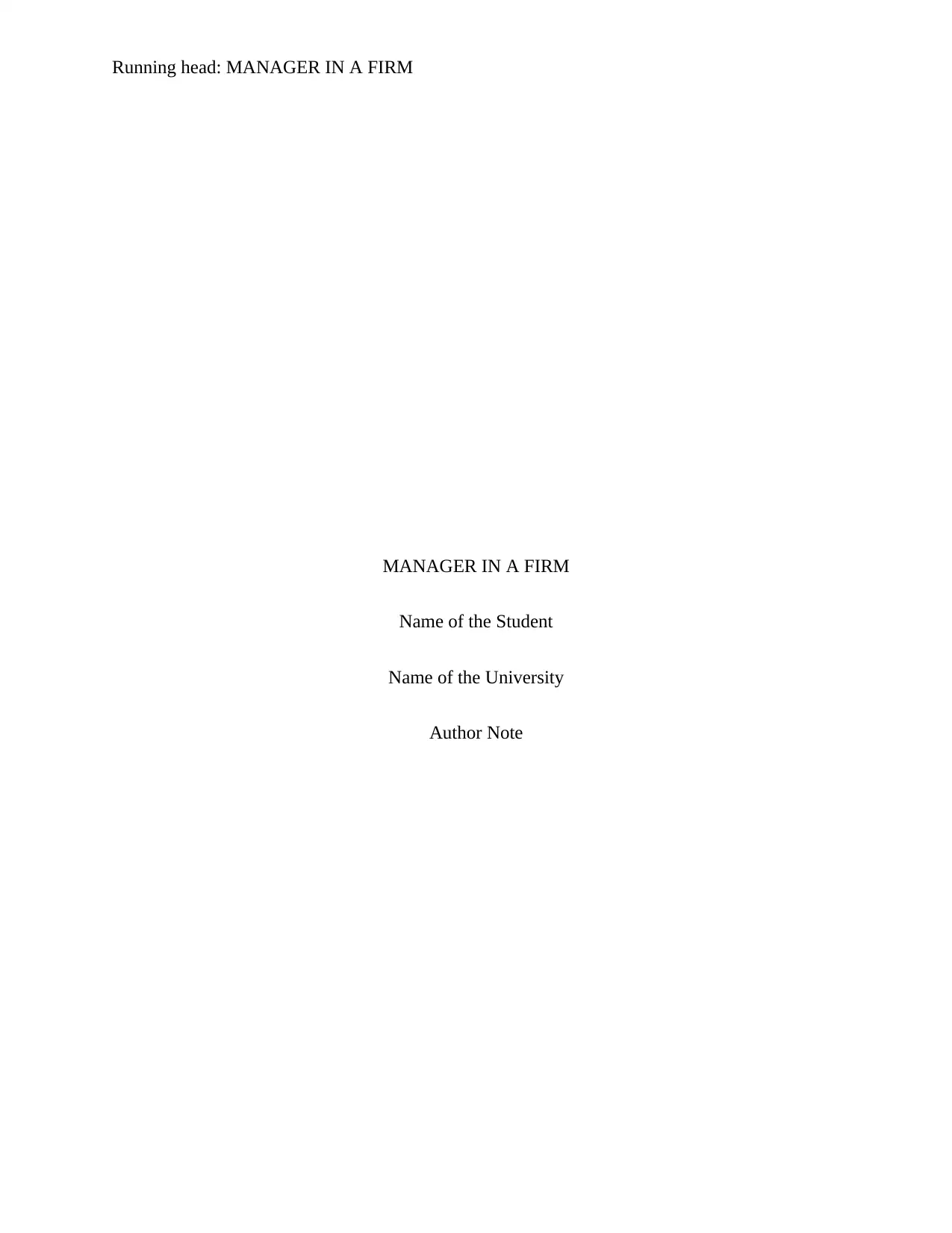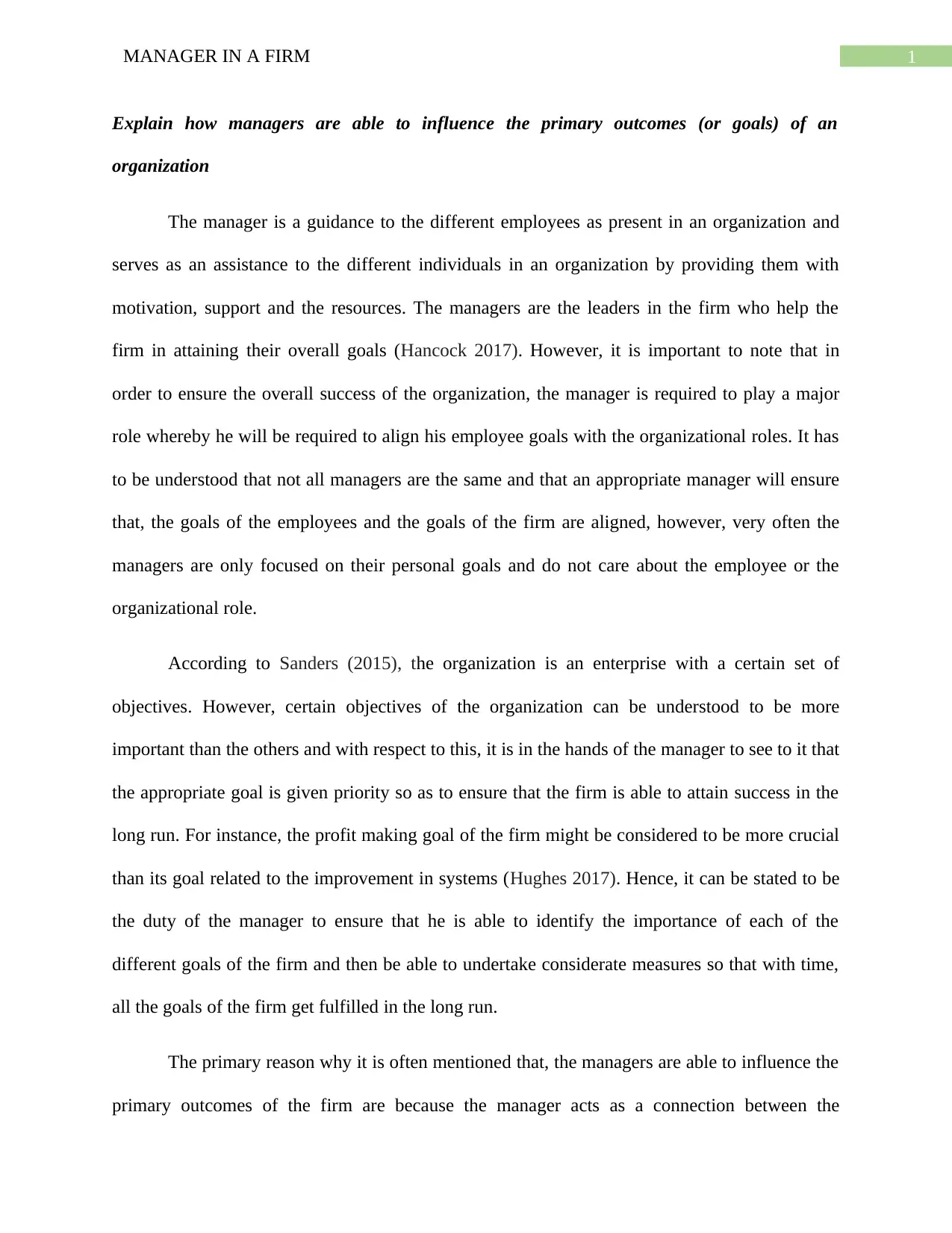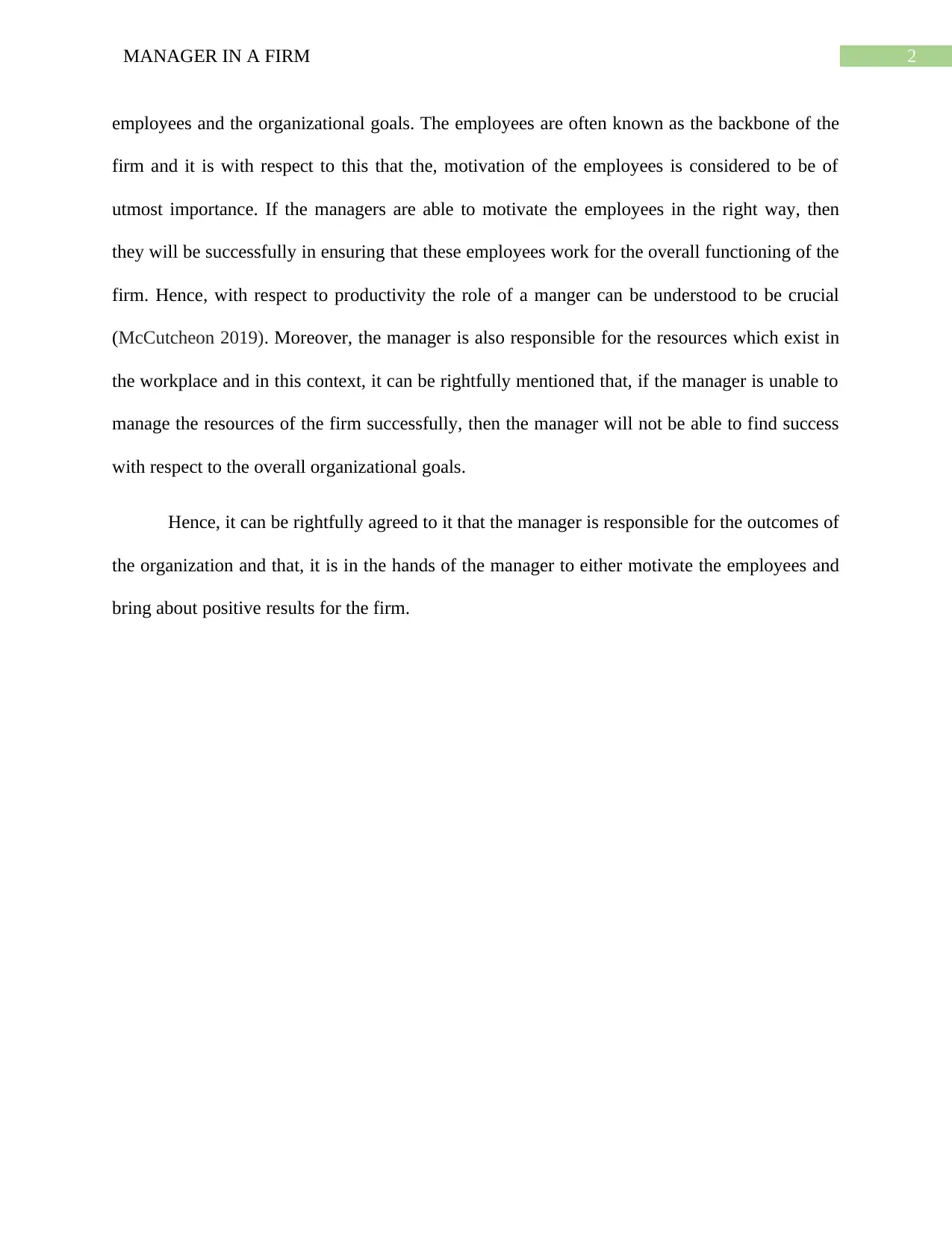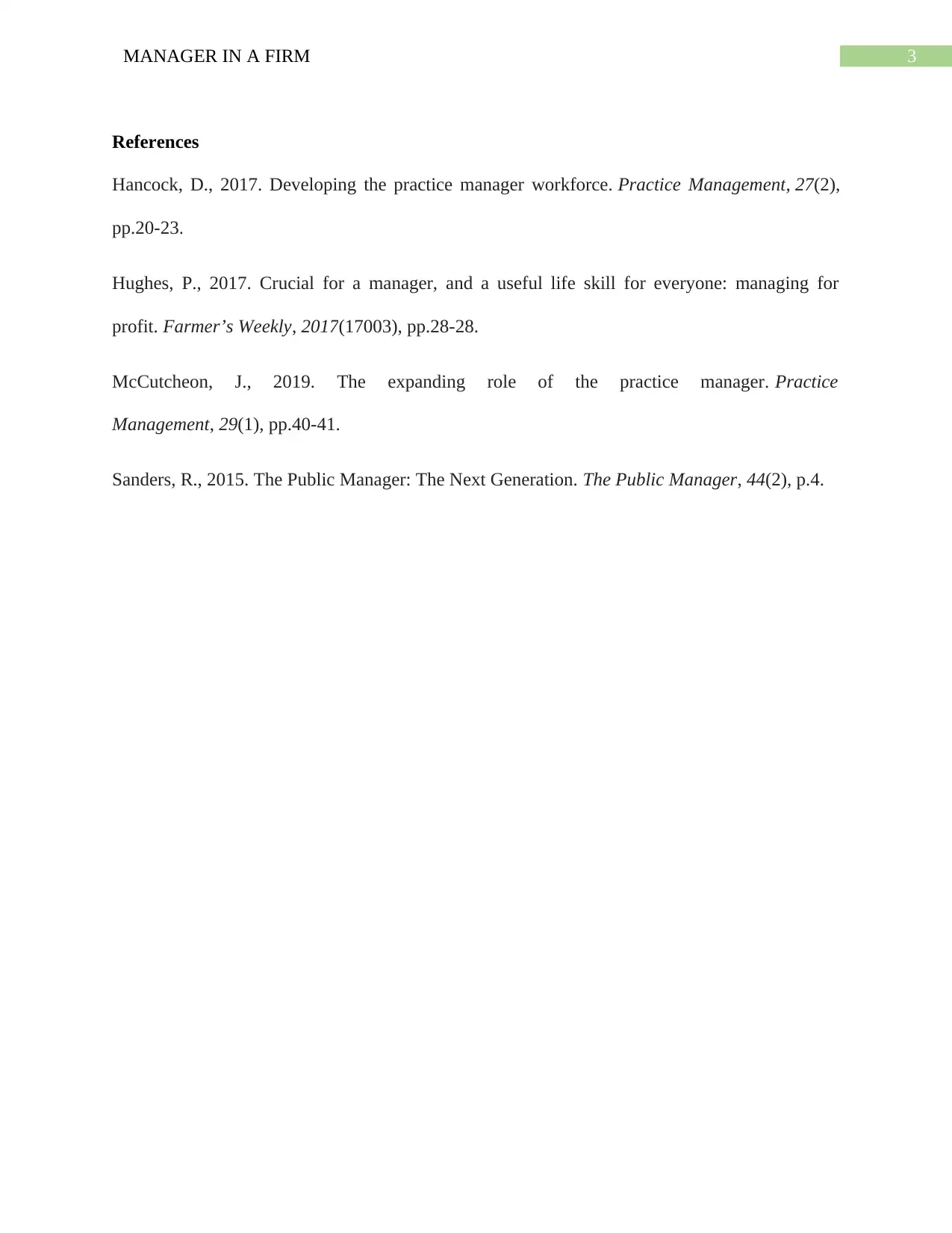Organizational Behaviour: Manager's Role in Influencing Goals
VerifiedAdded on 2023/04/10
|4
|627
|179
Essay
AI Summary
This essay examines the significant role managers play in influencing an organization's primary outcomes and goals. It highlights that managers act as a crucial link between employees and organizational objectives, emphasizing the importance of aligning employee goals with the firm's overall vision. The essay underscores the manager's responsibility in prioritizing organizational goals, effectively managing resources, and motivating employees to enhance productivity. By citing peer-reviewed academic journal articles, the essay supports the argument that a manager's ability to motivate employees and strategically manage resources directly impacts the organization's success and the attainment of its long-term objectives. The document is contributed by a student and available on Desklib for educational purposes.
1 out of 4











![[object Object]](/_next/static/media/star-bottom.7253800d.svg)